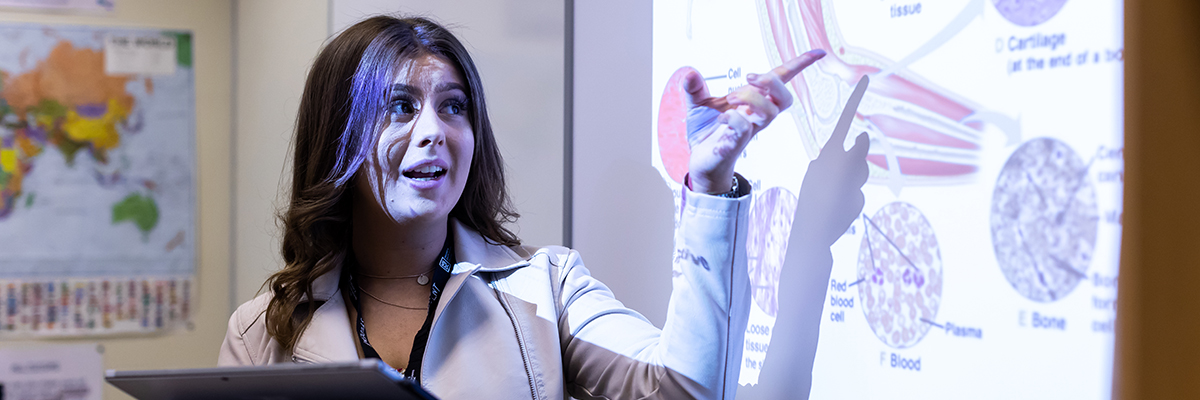

|
||||||
An Access to Higher Education Diploma is the ideal way for adult students (aged 19+) without traditional A Levels or Level 3 qualifications to qualify for entry to a degree or other Higher Education course. The Access qualification is a popular, nationally recognised qualification designed to provide adult students with the skills they need to apply for courses at universities.Access Diplomas are Level 3 courses specifically tailored toward the adult learner. The Teacher Education pathway is for adult students who are interested in preparing for Higher Education courses in Education, Primary Teacher Training, Youth Work, Youth and Childhood Studies, Child Care, plus a range of subject specific and Foundation Degrees.Core subjects will include: Educational Psychology, Human Biology and English language. (Note: All pathways also include modules in study skills, preparation for university and an independent project unit).Successful students receive an Access to Higher Education Diploma which is currently validated by a regional Access Validation Agency (LASER). This is a national validation indicating a common level of academic achievement, recognised by universities. In addition, grades achieved through completion of Level 3 units will be shown separately on the certificate to indicate individual subject achievement/ability.
All applicants are required to possess a minimum of grade 4/C in GCSE Maths, English and Science. Students are also required to carry out their own research into the specific entry requirements for their chosen university courses prior to application.Havant & South Downs College offers several Maths and English courses at various levels for potential Access students and a wide range of GCSEs.For many courses, relevant work experience is also required prior to the university application. Havant & South Downs College has its own work experience department that can offer advice with work placements. Students will also need a clean DBS in order to pursue careers in teaching, youth work and child care. You will be asked to declare any criminal record on application.
Access classes take the form of two sessions per week for 35 weeks. Each session begins with an optional individual/additional support session, followed by a 30-minute tutorial and a three hour taught session. In the early weeks of the course students will be taught study skills to introduce and develop essay writing and academic skills to help them complete assessments; they will also receive advice and support in the process of completing the application to university. In addition to the contact hours, students will be required to complete independent work each week.All credits on the Access programmes at Havant & South Downs College with be at Level 3 and will comprise of the following:Academic study skillsEnglish studiesEnglish language developmentEnglish language: writing for a different purposeShort storiesPsychology studiesThe psychology of educationPsychology in teachingBiology studiesFundamentals of human anatomy and physiologyHuman anatomy and physiologyExtended independent academic study
Access courses are taught by a team of specialist subject lecturers, supported by a tutor. Students are also given help and advice on applying for Higher Education in specific sessions from tutors and also the College Careers Department. Classes are informal and incorporate a variety of teaching and learning methods e.g. discussion, lectures, group work, practical sessions etc. Attendance is compulsory.
Assessment is made through completion of assignment based activities, essays, course work, independent study and research, practical work and class based tests.In order to achieve an overall pass, students must achieve 60 credits of which at least 45 must be at Level 3 and up to 15 at Level 2. All Level 3 credits will be graded at Pass, Merit or Distinction.
Higher Education (university), application to a variety of undergraduate courses in vocational areas or single subjects. Students are also given considerable help and advice on applying for Higher Education.